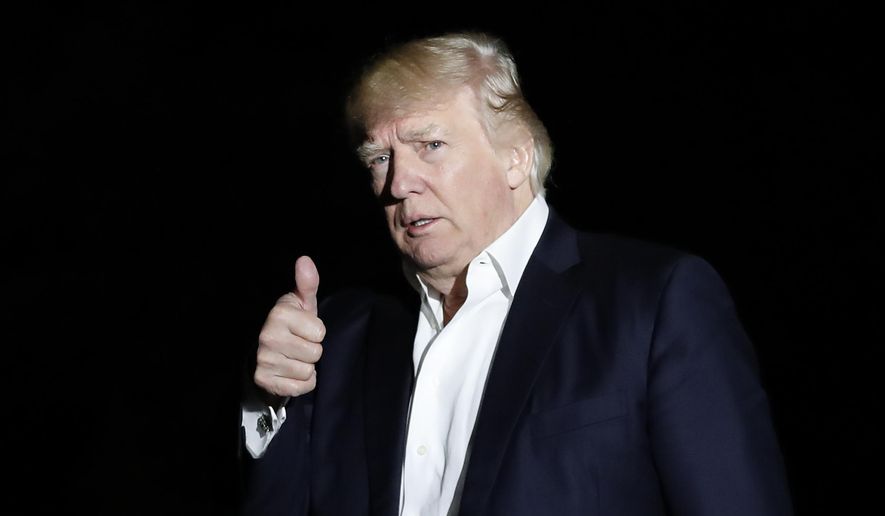President Trump is announcing his selection Monday of five conservative nominees to federal appeals courts, building on his successful nomination of Justice Neil Gorsuch to the Supreme Court.
The White House said Mr. Trump intends to nominate a “third wave” of judicial candidates including Michigan Supreme Court Justice Joan Larsen and Louisville, Kentucky attorney John K. Bush to the 6th Circuit Court of Appeals; Minnesota Supreme Court Justice David Stras to the 8th Circuit; University of Notre Dame law professor Amy Coney Barrett, a former law clerk for the late Supreme Court Justice Antonin Scalia, to the 7th Circuit; and Alabama lawyer Kevin Newsom, a former law clerk for retired Justice David Souter, to the 11th Circuit.
Justices Larsen and Stras were on the president’s list of conservative judges whom he said during the campaign he would consider for the Supreme Court.
The president also will appoint four judges to district court seats.
White House press secretary Sean Spicer said the nominees were chosen for their deep knowledge of the law and their adherence to principles of upholding the Constitution. He said the new wave of nominees is the latest step in what will be the president’s “robust” pace of judicial nominations.
Conservative activists praised the latest nominations.
SEE ALSO: Donald Trump will have influence on federal courts, but not just yet
“President Trump is building on the success of his nomination of Justice Gorsuch with an outstanding new slate of nominees for the lower federal courts,” said Carrie Severino, chief counsel of the Judicial Crisis Network. “The nominees have stellar qualifications and a record of courageous commitment to the rule of law that will make them excellent additions to the federal bench. When it comes to fulfilling his campaign promise to appoint strong, principled judges, Trump is knocking it out of the park.”
The official confirms that Ms. Coney Barrett will be nominated to the 7th Circuit, and Mr. Newsom will be nominated to the 11th Circuit.
There are dozens of federal judicial vacancies, presenting an opportunity for Mr. Trump to make his mark with lifetime appointments. Federal appeals courts have 20 vacancies , out of a total of 179 posts.
There are also 101 vacancies on U.S. district courts, out of 677 total seats, and eight other vacancies on the U.S. Court of International Trade and the U.S. Court of Federal Claims.
With the filibuster no longer available to Senate Democrats on any judicial nominations, Mr. Trump should encounter less effective opposition to his nominees.
Still, Committee for Justice President Curt Levey said Senate Democrats are likely to slow the confirmation process by “exploiting” debate time at “a record level.” He said Democrats also could try to defeat nominees “by abusing the ’blue slip’ privileges granted to the two senators from each nominee’s home state.”
“If Democrats go that extreme, Senate Judiciary Chairman Chuck Grassley [Iowa Republican] may be forced to curtail the 100-year-old blue slip tradition,” he said.
Mr. Levey noted that five of Mr. Trump’s first six expected nominees to federal appeals courts are younger than 50 years old.
“The large number of judicial vacancies gives President Trump a historic opportunity to move the federal courts in the right direction — towards constitutionalism and away from judicial activism — in just four years,” Mr. Levey said. “Fulfilling this opportunity will require a steady stream of judicial nominations from the White House and a brisk pace of hearings in the Senate Judiciary Committee.”
• Dave Boyer can be reached at dboyer@washingtontimes.com.




Please read our comment policy before commenting.